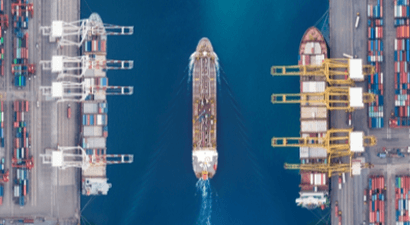IS SARS CONTRIBUTING TO UNEMPLOYMENT?
The South African Revenue Service (“SARS”) plays an essential and indispensable role in the functioning of the South African economy. SARS performs the following pivotal functions:
- Collecting all tax and customs revenue due to the state;
- Enforcing compliance with tax and customs legislation;
- Facilitating legitimate trade through the customs service; and
- Protecting the economy and society.
SARS is afforded wide powers in performing said functions, and these wide powers can sometimes be draconian, leading to outcomes that are not always fair. With that being said, SARS needs to be mindful of the impact of its actions. Many individuals who have experienced the application of these powers firsthand understand that these powers can be misused, often without accountability for those in charge. This misuse can lead to the unjust closure of businesses, which negatively affects not only the owners of these businesses but also the livelihoods of employees who depend upon them.
Unemployment is one of the biggest scourges facing South Africa and its citizens. It is essential that all efforts are made to prevent this situation from worsening. Therefore, SARS needs to take care in situations where actions taken can lead to further unemployment. For example, Small, Medium and Micro Enterprises (“SMMEs”) generally have limited resources and operate on tight budgets, and so any minor changes to their finances can have disastrous consequences.
One area in particular is financially draining on businesses, that is, customs stops and detentions. SARS is granted broad powers in terms of the frequency of stops, and can choose to focus on a specific industry or commodity when stopping cargo. Often, the investigations that follow drag on for months or years. SARS must consider the financial impact that repeated and/or continued stops have on a business’s bottom line.
The Supreme Court of Appeal (“SCA”) in the Trend Finance case[1] attempted to deal with the length of time SARS takes to deal with such matters and held that “the right to detain goods endured only for a period of time reasonable for the investigation which the section contemplated was to be made, but no longer”.
Whilst the importance of this power is understood, SARS should not have excessive stops and unnecessary, lengthy detentions. SARS shouldn’t stop identical products from the same importer if the previously detained shipment was released as entered. Doing so can have serious financial consequences for SMMEs due to the storage and demurrage costs associated with these stops.
SMMEs play a vital role in reducing unemployment, and SARS must not contribute to the unnecessary increase in unemployment. Instead, SARS must protect SMMEs, as SMMEs protect the economy and society as a whole. This issue is a powerful reminder that with great power comes great responsibility.
Should SMMEs (and other entities) face such issues, Shepstone & Wylie can assist in facilitating the resolution of the matter.
[1] Commissioner, South African Revenue Service v Trend Finance (Pty) Ltd and Another 2007 (6) SA 117 (SCA)





